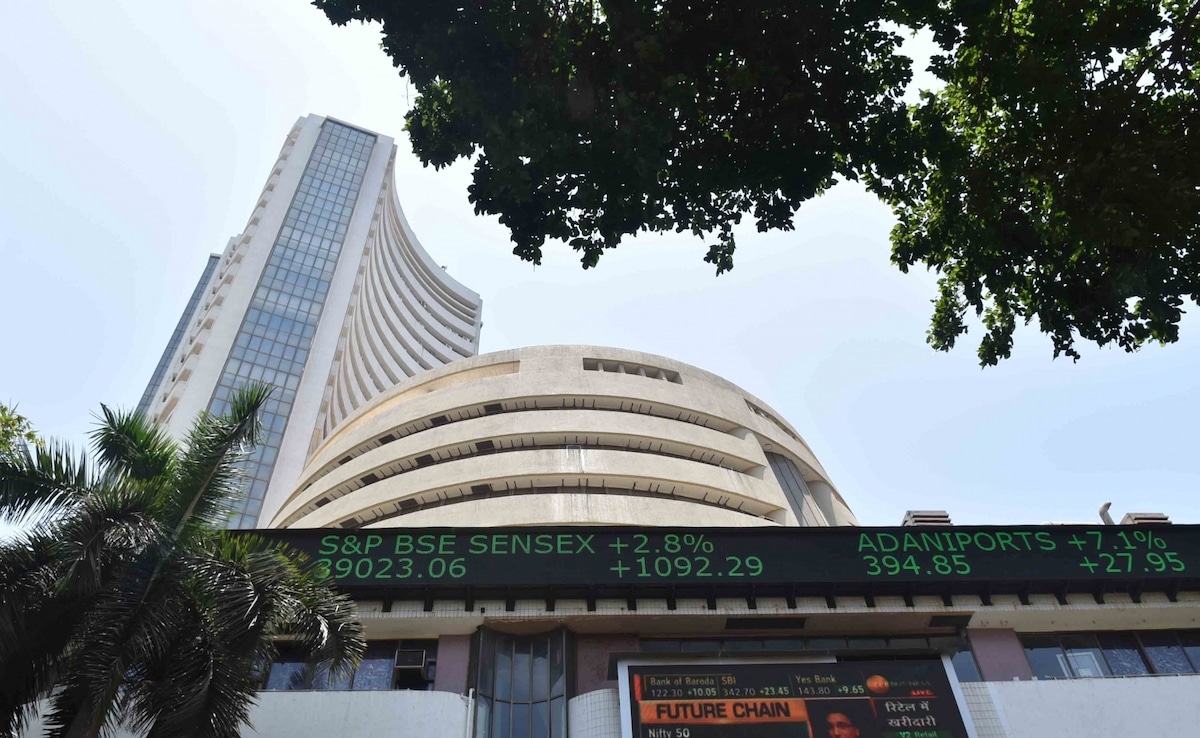Market Dips 1.47% as Global Trade Tensions Mount
In a dramatic turn of events, the Indian stock market experienced a steep decline on Tuesday, with the Sensex dropping by over 1,000 points in early trading. The notable plunge, which saw the benchmark index down by 1,136.25 points or 1.47% at 76,260.90, is attributed to rising concerns over impending tariffs proposed by the U.S. government, set to take effect on April 2. As international trade relations become increasingly fraught, investors are reacting to the uncertainty that surrounds global economic stability.
The downward trend was reflected across all major indices, with Nifty also feeling the impact, closing at 23,231.20, a dip of 283.70 points or 1.21%. Furthermore, midcap and smallcap stocks were not spared from the selling pressure; with Nifty midcap 100 down by 359.10 points or 0.69% at 51,313.35, and Nifty smallcap 100 down by 99.35 points or 0.61% at 15,997.15. Major sectors like IT, financial services, pharmaceuticals, metals, real estate, and the automotive industry all faced significant losses.
Investor sentiment is currently fraught with apprehension as the implications of tariffs loom large over market performance, prompting cautious trading. This decline is part of a broader trend influenced by global economic factors, particularly the U.S. market’s response to ongoing trade tensions and its potential impact on international equities.
The turbulence in the Indian stock market comes at a time when almost all Asian markets were showing positive signals, with Shanghai, Tokyo, Seoul, Bangkok, and Hong Kong trading in the green. Contrarily, the U.S. market managed a recovery from a recent seven-month low, with gains of approximately 1% on the previous Monday, demonstrating the complexity and volatility current global conditions impose on market confidence.
Investor Reactions: Caution and Strategy Moving Forward
The sharp declines on the Indian market have led analysts and investors to temper their expectations regarding immediate market recovery. Krishna Appala from Capitalmind Research remarked on the sentiment saying, “Potential tariff announcements and their economic fallout remain key concerns influencing sentiment.” This suggests that investor confidence remains precarious, underlining the need for robust strategies in navigating these turbulent times.
Despite the surrounding volatility, market experts believe that India’s domestic market fundamentals remain promising. Analysts indicate that while short-term fluctuations may persist due to external factors, the country’s strong economic indicators lend hope for a more stable long-term outlook. Assets such as gold are being regarded as essential portfolio stabilizers, effectively complementing broader investment strategies rather than being treated as speculative assets.
The recent trend has also seen foreign institutional investors (FIIs) turning into net sellers, as illustrated by the sale of equities worth Rs 4,352 crore on March 28. Conversely, domestic institutional investors (DIIs) have shown resilience, purchasing equities amounting to Rs 7,646 crore, indicating a divergence in investment strategies between domestic and foreign investors.
As the markets fluctuate, the necessity for cautious investment and effective risk management strategies becomes paramount. The outlook remains clouded, and investors are reminded to stay informed about both domestic economic conditions and international developments.
Both long-term and short-term investors are advised to remain vigilant, particularly as trade tensions appear to be far from resolution. For investors looking for stability amid the chaos, a diversified investment strategy could prove beneficial in navigating through this unpredictable financial landscape.
If you’re interested in learning more about how to diversify your investments, you can read about it here: Diversifying Your Portfolio in Volatile Markets.
Moreover, understanding the global impact of U.S. tariffs on international trade is crucial for local investors. To gain further insights into the potential consequences, consider reviewing this informative article on the subject: How U.S. Tariffs Affect Global Markets.
The Bigger Picture: A Shifting Economic Landscape
The reaction of the Indian and global stock markets to the potential U.S. tariffs is indicative of a broader narrative in international finance. While the immediate focus lies on the economic impacts of tariffs, it also sheds light on how interconnected global economies truly are.
In conclusion, the economic landscape appears increasingly precarious as the potential for tariffs looms large. Investors should brace for ongoing volatility while also keeping a close watch on both domestic and international developments. As per the report by NDTV, the evolving nature of these negotiations and resulting market fluctuations underscore the importance of strategic investment choices in these uncertain times.
Keeping informed and making well-researched decisions is key to navigating the complexities of the stock market, particularly in an environment where external factors heavily influence market behavior. Stay tuned for further updates as the situation develops.
DISCLAIMER
We have taken every measure to ensure that the information in this article and on our social media platforms is accurate, verified, and obtained from reliable sources. For feedback or complaints, please contact us at info@hamslive.com.


